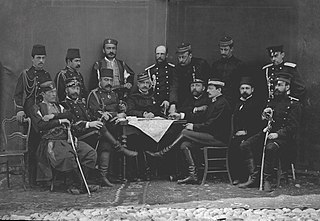External links
European Years (1983–present) | ||
|---|---|---|
|  | |
| Authority control databases: National |
|---|
| | This article about the European Union is a stub. You can help Wikipedia by expanding it. |
The year 2003 was designated the European Year of People with Disabilities (EYPD) by the European Commission. It is sometimes called the European Year of Disabled People.
The European Commission set aside 12 million euros to recognise the European Year of People with Disabilities.
The Year was officially launched under the Greek Presidency in Athens on 26 January 2003. The opening ceremony in Athens was co-hosted by Julie Fernandez.

The Disability Discrimination Act 1995 is an Act of the Parliament of the United Kingdom which has now been repealed and replaced by the Equality Act 2010, except in Northern Ireland where the Act still applies. Formerly, it made it unlawful to discriminate against people in respect of their disabilities in relation to employment, the provision of goods and services, education and transport.

Accessibility is the design of products, devices, services, vehicles, or environments so as to be usable by people with disabilities. The concept of accessible design and practice of accessible development ensures both "direct access" and "indirect access" meaning compatibility with a person's assistive technology.
A disability pension is a form of pension given to those people who are permanently or temporarily unable to work due to a disability.
Julie Mare Fernandez is a British actress and model best known for her role as Brenda in the BBC comedy The Office. Fernandez has been working full time as an Access Coordinator since April 2022. Fernandez was hired by Casarotto Ramsay & Associates in 2023 as an agent to represent, train and develop talent, supporting all those with access requirements across the film, television and theatre industries.
Universal design is the design of buildings, products or environments to make them accessible to people, regardless of ageism, disability or other factors. It emerged as a rights-based, anti-discrimination measure, which seeks to create design for all abilities. Evaluating material and structures that can be utilized by all. It addresses common barriers to participation by creating things that can be used by the maximum number of people possible. “When disabling mechanisms are to be replaced with mechanisms for inclusion, different kinds of knowledge are relevant for different purposes. As a practical strategy for inclusion, Universal Design involves dilemmas and often difficult priorities.” Curb cuts or sidewalk ramps, which are essential for people in wheelchairs but also used by all, are a common example of universal design.
Web accessibility, or eAccessibility, is the inclusive practice of ensuring there are no barriers that prevent interaction with, or access to, websites on the World Wide Web by people with physical disabilities, situational disabilities, and socio-economic restrictions on bandwidth and speed. When sites are correctly designed, developed and edited, more users have equal access to information and functionality.

The Energy Community, commonly referred to as the Energy Community for South East Europe (ECSEE), is an international organization consisting of the European Union (EU) and a number of non-EU countries. It aims to extend the EU internal energy market to wider Southeast Europe. The members commit to implement relevant EU energy acquis communautaire, to develop an adequate regulatory framework and to liberalize their energy markets in line with the acquis under the founding Treaty.
Nikos "Nikko" Patrelakis is a Greek musician.

WZYP is a top 40 (CHR) music-formatted radio station licensed to serve Athens, Alabama, and broadcasting in the Huntsville, Alabama, area. The station is owned by Cumulus Media and formerly broadcast in HD. The broadcast signal can be heard throughout northern Alabama and much of southern central Tennessee. Its studios are in Athens and its transmitter is in Madison, Alabama.
United Kingdom employment equality law is a body of law which legislates against prejudice-based actions in the workplace. As an integral part of UK labour law it is unlawful to discriminate against a person because they have one of the "protected characteristics", which are, age, disability, gender reassignment, marriage and civil partnership, race, religion or belief, sex, pregnancy and maternity, and sexual orientation. The primary legislation is the Equality Act 2010, which outlaws discrimination in access to education, public services, private goods and services, transport or premises in addition to employment. This follows three major European Union Directives, and is supplement by other Acts like the Protection from Harassment Act 1997. Furthermore, discrimination on the grounds of work status, as a part-time worker, fixed term employee, agency worker or union membership is banned as a result of a combination of statutory instruments and the Trade Union and Labour Relations (Consolidation) Act 1992, again following European law. Disputes are typically resolved in the workplace in consultation with an employer or trade union, or with advice from a solicitor, ACAS or the Citizens Advice Bureau a claim may be brought in an employment tribunal. The Equality Act 2006 established the Equality and Human Rights Commission, a body designed to strengthen enforcement of equality laws.

Accessible tourism is the ongoing endeavor to ensure tourist destinations, products, and services are accessible to all people, regardless of their physical or intellectual limitations, disabilities or age. It encompasses publicly and privately owned and operated tourist locations. The goal of accessible tourism is to create inclusivity of all including those traveling with children, people with disabilities, as well as seniors. This allows those with access requirements to be able to function as an independent using products following the universal design principle, a variety of services, and different environments.
Events from the year 2003 in the European Union.

The Statue of Europe is a sculpture symbolising peace through European integration, while at the same time aiming to demonstrate the motto of the European Union (EU), "United in Diversity". It is located in the garden of Convent Van Maerlant in the crossroads of the Rue Van Maerlant/Van Maerlantsraat and the Chaussée d'Etterbeek/Etterbeeksesteenweg, in the European Quarter of Brussels, Belgium. Made out of resin, the statue measures more than 5 m and weighs nearly 800 kg. It was inaugurated on 9 December 2003 by Neil Kinnock and Viviane Reding, who respectively were Vice-President of the European Commission and Commissioner for Culture at the time. 2003 was the European Year of People with Disabilities, and the Eastern enlargement of the EU was awaited.

The International Commission of Control was the commission established on October 15, 1913, on the basis of the decision by the six Great Powers made on July 29, 1913, according to the London Treaty signed on May 30, 1913. Its goal was to take care of the administration of newly established Albania until its own political institutions were in order.

Australia competed at the 2004 Summer Paralympics in Athens, Greece. It was Australia's 12th year of participation at the Paralympics. The team included 151 athletes. Australian competitors won 101 medals to finish fifth in the gold medal table and second on the total medal table. Australia competed in 12 sports and won medals in 8 sports. The Chef de Mission was Paul Bird. The Australian team was smaller than the Sydney Games due to a strict selection policy related to the athletes' potential to win a medal and the International Paralympic Committee's decision to remove events for athletes with an intellectual disability from the Games due to issues of cheating at the Sydney Games. This was due to a cheating scandal with the Spanish intellectually disabled basketball team in the 2000 Summer Paralympics where it was later discovered that only two players actually had intellectual disabilities. The IPC decision resulted in leading Australian athletes such as Siobhan Paton and Lisa Llorens not being able to defend their Paralympic titles. The 2000 summer paralympic games hosted in Sydney Australia proved to be a milestone for the Australian team as they finished first on the medal tally for the first time in history. In comparing Australia's 2000 Paralympic performance and their 2004 performance, it is suggested that having a home advantage might affect performance.

Hamish Anderson MacDonald, OAM is an Australian Paralympic athlete. He was born in Melbourne and lives in Canberra. He has cerebral palsy. His achievements and advocacy have made him one of Australia's most respected Paralympians.

Ramon (Ray) Gary Epstein, is an Australian Paralympic weightlifter and powerlifting coach. He represented Australia in weightlifting at the 1988 Seoul and 1992 Barcelona Paralympics and was Head Coach of the Australian Paralympic powerlifting team between 2003 and 2013.
Four million people in Australia (18.5%) reported having a disability in 2009, according to the results of the Survey of Disability, Ageing and Carers. Males and females were similarly affected by disability.
Stelios Kympouropoulos is a Greek psychiatrist and politician of the New Democracy party who has been serving as a Member of the European Parliament since the 2019 elections.

#WeThe15 is a global human rights movement which aims to make persons with disabilities, who make up 15% of the world's population, visible. An initiative of the International Paralympic Committee and the International Disability Alliance, it is supported, by a number of organisations from the world of disability sports, disability rights, non-governmental and governmental organisations. It was launched as part of the 2020 Summer Paralympics in 2021. Landmarks across the world were lit up in purple to coincide with the opening ceremony. The movement was given particular focus during the closing ceremony.